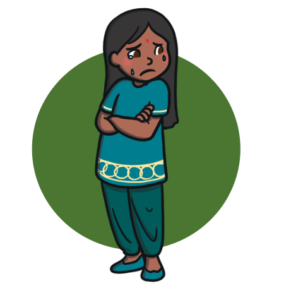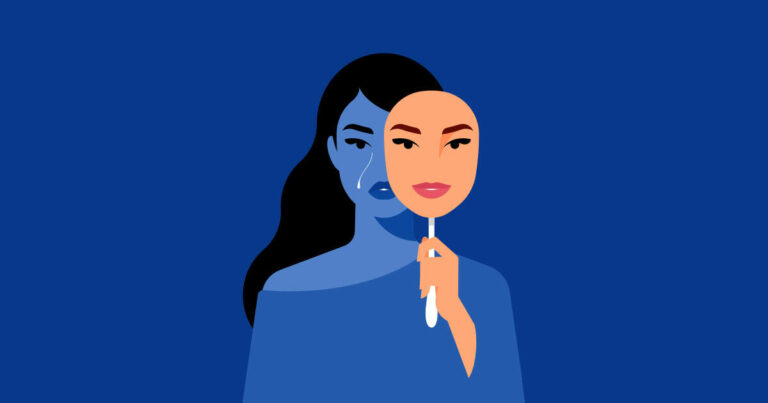How to Calm Your Anxiety?
Anxiety is a common emotional response that can be overwhelming and disruptive to daily life. Finding effective ways to calm anxiety is essential for maintaining mental health and overall well-being. Here are several strategies to help manage and reduce anxiety.
Table of Contents
Understanding Anxiety
Anxiety is a natural reaction to stress, characterized by feelings of worry, nervousness, or fear. It can manifest physically through symptoms such as increased heart rate, sweating, trembling, and difficulty breathing. Understanding the nature of anxiety is the first step in learning how to manage it effectively.
Immediate Techniques to Calm Anxiety
Deep Breathing Exercises
Deep breathing is a powerful tool to calm anxiety. It helps activate the body’s relaxation response, reducing the physical symptoms of anxiety. Practice the following steps:
- Find a comfortable position.
- Inhale deeply through your nose for a count of four.
- Hold your breath for a count of four.
- Exhale slowly through your mouth for a count of six.
- Repeat this cycle several times until you feel calmer.
Grounding Techniques
Grounding techniques can help bring your focus back to the present moment, reducing feelings of anxiety. Try the 5-4-3-2-1 method:
- Five things you can see: Look around and name five things you can see.
- Four things you can touch: Identify four things you can touch.
- Three things you can hear: Listen for three different sounds.
- Two things you can smell: Notice two different scents.
- One thing you can taste: Focus on one taste in your mouth or take a sip of water.
Progressive Muscle Relaxation
Progressive muscle relaxation involves tensing and then relaxing different muscle groups in the body. This can help reduce physical tension and promote relaxation.
- Start with your toes and gradually work your way up to your head.
- Tense each muscle group for a few seconds, then release.
- Pay attention to the sensation of relaxation as you release the tension.
YOU MAY ALSO READ: What is the best treatment for Bacterial Vaginosis?
Long-Term Strategies to Manage Anxiety
Regular Physical Activity
Exercise is a natural anxiety reliever. Physical activity increases the production of endorphins, which are natural mood lifters. Aim for at least 30 minutes of moderate exercise most days of the week. Activities like walking, jogging, yoga, and swimming can be particularly beneficial.
Healthy Diet
A balanced diet can have a significant impact on anxiety levels. Foods rich in omega-3 fatty acids, antioxidants, and magnesium can help reduce anxiety. Include the following in your diet:
- Fatty fish (salmon, mackerel)
- Nuts and seeds
- Leafy greens
- Berries
- Whole grains
Adequate Sleep
Quality sleep is essential for managing anxiety. Aim for 7-9 hours of sleep per night. Establish a regular sleep routine by going to bed and waking up at the same time each day. Avoid caffeine and electronic devices before bedtime.
Mindfulness and Meditation
Mindfulness and meditation practices can help you stay grounded and reduce anxiety. Set aside a few minutes each day to practice mindfulness or meditation. Focus on your breathing, observe your thoughts without judgment, and bring your attention back to the present moment.
Limit Stimulants
Reduce your intake of caffeine and alcohol, as they can exacerbate anxiety. Opt for herbal teas and other non-caffeinated beverages instead.

Seeking Professional Help
If anxiety persists and interferes with your daily life, consider seeking professional help. Therapists and counselors can provide effective treatments such as cognitive-behavioral therapy (CBT) and other therapeutic approaches. Medication may also be prescribed in some cases to help manage anxiety symptoms.
Support Groups
Joining a support group can provide a sense of community and understanding. Sharing experiences and coping strategies with others who understand what you’re going through can be incredibly helpful.
Self-Care Practices
Hobbies and Interests
Engage in activities that you enjoy and that help you relax. Hobbies such as reading, gardening, painting, or playing a musical instrument can provide a positive distraction and reduce anxiety.
Time Management
Effective time management can help reduce stress and anxiety. Break tasks into smaller, manageable steps, and prioritize your responsibilities. This can prevent feeling overwhelmed and improve your overall sense of control.
Set Realistic Goals
Setting realistic and achievable goals can help reduce anxiety. Break larger goals into smaller, actionable steps and celebrate your progress along the way.
Conclusion.
Calming anxiety involves a combination of immediate techniques and long-term lifestyle changes. Deep breathing, grounding techniques, and progressive muscle relaxation can provide quick relief. Regular exercise, a healthy diet, adequate sleep, and mindfulness practices can help manage anxiety over the long term. If anxiety persists, seeking professional help is a crucial step towards effective management. By incorporating these strategies into your daily life, you can reduce anxiety and improve your overall well-being.







